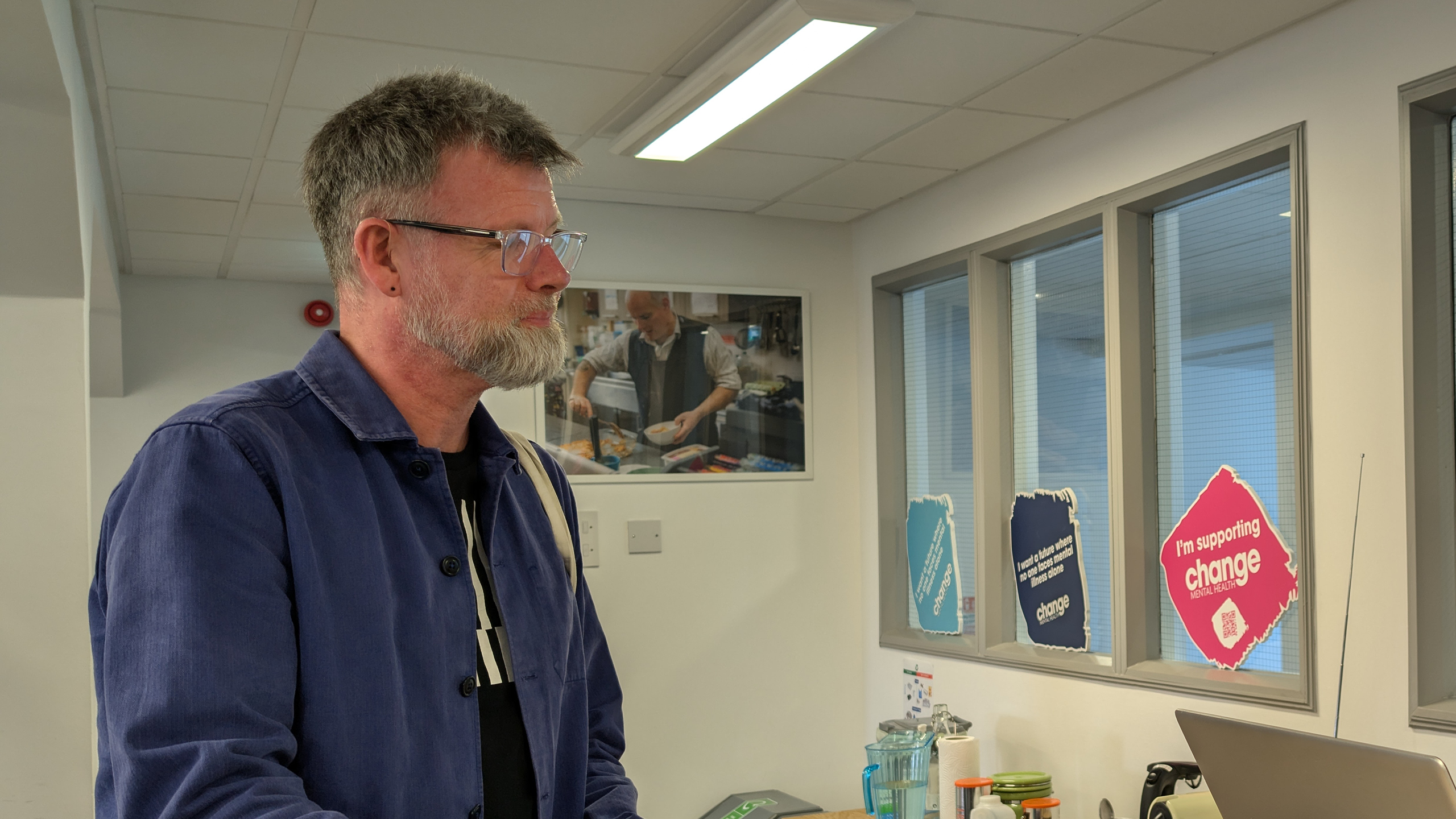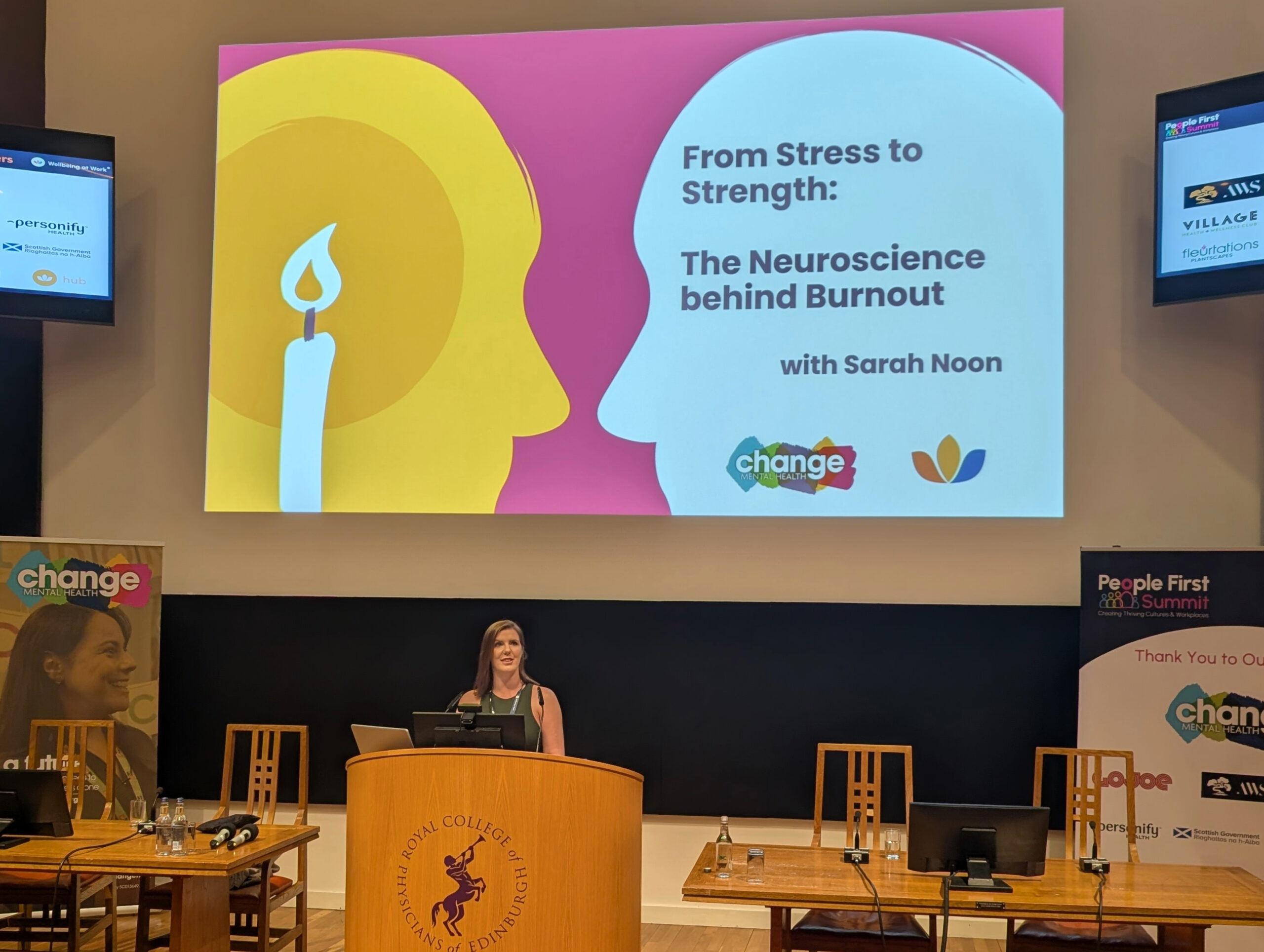“Am I disabled enough?”: Understanding ADP and mental illness in Scotland
How people with mental health conditions experience Adult Disability Payment (ADP)? Learn what’s working, what’s not and how the system can better respond.

The Adult Disability Payment (ADP) is designed to make things easier. But, for people living with mental illness, the process often feels like the opposite. Long forms, vague questions and a system that many don’t believe applies to them. You don’t have to be out of work. You don’t need a diagnosis. And you don’t need to be physically disabled to apply. But for people who don’t see themselves as “disabled enough”, applying can feel out of reach.
In this piece, we speak to Neil Walker from our National Advice and Support Service, and Klaudia, a carer who supported her partner through an ADP application, about what the process really involves and what needs to change.
what is ADP in Scotland?
ADP was introduced by the Scottish Government in 2022 to replace the UK-wide Personal Independence Payment (PIP). Since August that year, new applicants in Scotland have applied for ADP, with existing PIP recipients gradually transferring to the new system.
ADP is delivered by Social Security Scotland. Unlike PIP, it is not means-tested and you don’t need a formal diagnosis to apply.
“If someone meets the basic age and residency rules, and they live with a condition that affects their ability to function, they may be eligible,” explains Neil Walker, who supports individuals through Change Mental Health’s National Advice and Support Service.
“That doesn’t mean they need a formal diagnosis and/or that it is means-tested or related to Universal Credit. This is untrue: you can be at work and have savings.”
ADP looks at how someone’s health affects specific aspects of their daily life. These are called ‘descriptors’ and include things like: managing money, personal care, communication, preparing food or decision making. Each section asks how much help someone needs, how often and why.
Neurodivergence and mental illness, especially fluctuating conditions such as depression, schizophrenia, anxiety or bipolar, can impact each of these areas, though this isn’t always obvious to applicants.
“The role and skill of the adviser is to support the client to articulate how their condition affects their functioning (regardless of whether that condition is something that has been formally diagnosed) and to validate the client’s experiences and the challenges that they endure,” explains Neil.
the word ‘disability’
For many people with mental illness, the word ‘disability’ feels like a poor fit. That alone can stop someone from applying.
“The word ‘disability’ may indeed be problematic and a barrier to individuals who solely experience mental health conditions (i.e. in the absence of any physical impairment),” reflects Neil.
“Many clients who experience poor mental health may be willing to accept that their conditions are ‘disabling’ in some ways, but then be reticent about identifying themselves as having a ‘disability’.“
Others compare themselves to people with visible conditions. Some assume they’ll be wasting time. Some feel ashamed and impacted by the stigma of the word ‘disability’.
“Stigma is still very real.
“People are embarrassed or worried they’re wasting someone’s time. That’s why services like ours exist. We help people recognise that their experience matters. That it deserves support.”
a carer’s experience of the ADP process
Klaudia, a carer who supported her partner, who lives with depression, anxiety, ADD and autism, through the ADP process. The form arrived by post.
“It’s long. We received it in a paper format where you have to handwrite everything. I honestly can’t imagine someone struggling with their mental health, attention span or cognitive function managing to get through that form on their own.”
They completed the form over several days. Klaudia recalls how emotionally draining it was to write about the most difficult moments.
“I was told to focus on the worst days. So, you sit there, reliving the hardest moments. You know why you’re doing it, but it’s exhausting. And after the tenth question, you both had enough of it.”
Some sections were especially difficult.
“We felt like we were exaggerating. I had to keep reminding my partner: this isn’t your good day – we’re talking about your worst. Writing about not changing clothes for days or feeling too low to leave home for a week is horrible.”
Their initial application was rejected. But they got support with the appeal from Number 6, an autism support service delivered by Autism Initiatives UK.
Klaudia said: “Don’t do it alone. Without their help, I don’t think we’d have had a positive decision. They knew what to say and how to say it.”
“And don’t panic if it’s rejected at first. The appeal might give you clearer guidance. But get help. And when it’s done, give yourself space. It can really take it out of you.”
why support services matter
Neil and his team regularly support people to share things they may never have said out loud.
“We help manage expectations. But we also support people to share private, sometimes distressing information in a way that feels safe,” Neil says.
The questions often focus on practical tasks, but that can miss how deeply someone is affected by their condition.
“People might not want to say, ‘I can’t cook because I panic when I use the oven’ or ‘I don’t leave the house for days’. They might not even think that counts. That’s why we listen carefully. Advisers need to utilise their ‘soft skills’ to elicit this information in a kind and respectful manner. Obtaining supporting information as evidence can be a challenge for the client. We draw that out in a way that feels safe.”
Neil Walker
Advise and Support Officer
National Advice and Support Service
what still needs to change
In July 2025, the Scottish Government published an Independent Review of Adult Disability Payment. Neil contributed to a roundtable session alongside organisations across Scotland.
What struck him was how widely the mental health impact of long-term conditions was recognised.
“I was the only attendee specifically representing a mental health charity,” he said, “but what was surprising, and impactful, was how ready everyone else was to talk about the mental health toll on their service users. Whether it was RNIB, MS Society or cancer charities, each could clearly describe how living with a long-term condition affects people’s mental wellbeing.”
At the same time, Neil says that ADP often works better for people with physical or cognitive conditions.
“When it’s a psychological condition, like anxiety or depression, it’s harder to express. That’s why it takes a skilled adviser to draw out the right information.
“Anecdotally, that might be why so many people with only mental health conditions are turned down initially.”
The review confirmed many of the challenges advisors see day to day:
- The form is too long and complex.
- Communication and decision reporting from Social Security Scotland is sometimes unclear.
- Fluctuating conditions are not captured well.
- Support services are crucial for completing the process and achieving the desired result.
- The language doesn’t reflect lived experience.
- Trust in the system is still fragile.
Neil hopes the review, led by Edel Harris, will lead to practical change.
He finishes with a hopeful message that “Skilled advisers ought to be able to support a client to articulate the realities of the conditions that they live with. I think it is through the support of advisers that the process can be made to be more accessible, as well as trauma-informed.”
support
If you or someone you care for is applying or appealing a decision, get in touch with our National Advice and Support Service.
We’re here to help you understand your rights, find the right words, connect you to the best services in your area and get you the help you’re entitled to.
The service is open Monday to Friday, 10am to 4pm (closed for lunch between 12.30pm to 1.30pm). Contact 0808 8010 515, email advice@changemh.org or fill in the form on the service webpage.
For full details about the service, visit the National Advice and Support Service webpage.





